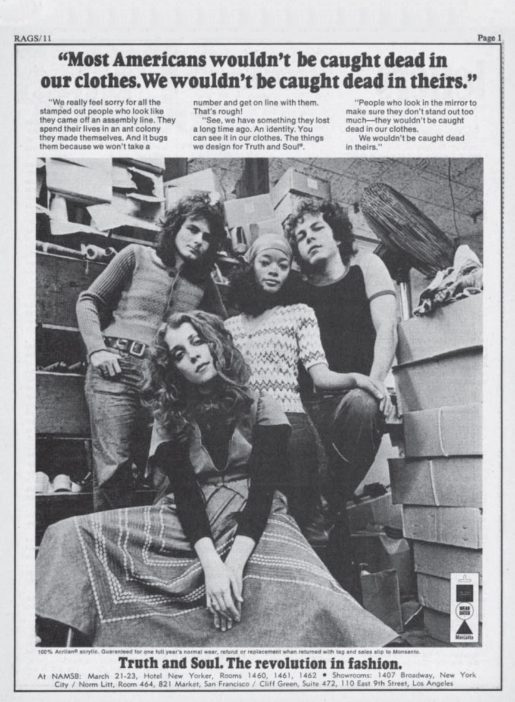This advertisement, published in Issue 11 of Rags, aims to connect with those who were dressing to express disdain for the mainstream. “Most Americans wouldn’t be caught dead in our clothes,” it declares, ostensibly voicing the thoughts of the four young people posing in the ad. “We wouldn’t be caught dead in theirs.” The ad calls out the generation gap in fashion, and tries to capitalize on it.
At the same time, the fine print of the ad reveals a tension between the words on the page and the company behind them. It would be easy to assume that small boutiques and DIY trends supplied the threads of revolution for Bay Area hippies in the 70s. However, this image from Rags, an alternative fashion magazine from San Francisco at the time, suggests that the picture was more complicated.
Beneath the image of hippie youth, sporting long hair and funky knits, there’s this guarantee related to the materials used for these hip threads: “100% Acrillan acrylic. Guaranteed for one full year’s normal wear, refund or replacement when returned with tag and sales slip to Monsanto.” Monsanto, a major agricultural corporation, appeared to provide the acrylic material for this proclaimed “revolution in fashion.” Though part of the rejection of the mainstream touted by hippies was a disassociation with white and capitalistic values, major companies attempted to capitalize upon this spirit of rebellion and turn it to their own ends.
